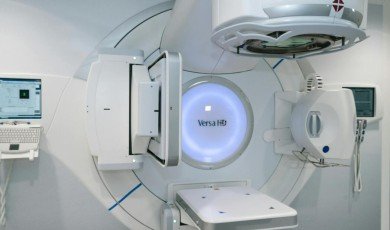
In the rapidly evolving world of oncology, the importance of clear, precise communication cannot be overstated. Treatment options for cancer are expanding at an unprecedented rate, driven by innovative therapies, targeted drug developments, and global clinical trials. As cancer becomes an increasingly survivable disease, patients and physicians alike are exploring new care paradigms that cross international borders and linguistic barriers. This globalization of cancer treatment not only enables access to the best available care but also increases the need for accurate, professional medical translation and medical interpretation services.
Errors in communication can have life-altering consequences in cancer care. From understanding complex diagnostic results to receiving detailed information about novel treatment regimens, clarity is crucial. This blog post explores how accurate medical translation and interpretation services are shaping oncology, ensuring patients receive safe, informed, and equitable access to potentially life-saving cancer drug therapies. We will also examine why drug information, trial protocols, and patient outcomes depend on the quality of these critical language services.
The Expanding Landscape of Cancer Treatments
The landscape of oncology is continually evolving. Over the past decade, there has been a surge in the development of targeted therapies, immunotherapies, and personalized medicine regimens. These advances, from CAR-T cell therapies to PARP inhibitors, promise longer survival and improved quality of life for many cancer patients. As these therapies become available worldwide, pharmaceutical companies, healthcare providers, and research organizations are increasingly sharing clinical data and treatment protocols across borders.
However, with this promising evolution comes a significant challenge: ensuring that vital information about these new cancer drugs—such as side effects, dosing schedules, clinical trial eligibility, and regulatory guidelines—is communicated accurately to diverse patient populations and multidisciplinary medical teams.
Why Translation Accuracy Matters in Oncology
- Patient Safety: Every misinterpretation or mistranslation in drug information, consent forms, or post-treatment care instructions can compromise patient safety. In oncology, where drugs often have narrow therapeutic windows and significant toxicity risks, accuracy can be life-saving.
- Regulatory Compliance: Health authorities rigorously monitor drug documentation for accuracy. For multinational cancer drug launches, accurate translations of regulatory submissions ensure compliance and accelerate market access.
- Clinical Trials: Many groundbreaking cancer therapies are developed through global clinical trials. Translating protocols, informed consent, and patient-reported outcomes is essential to ethical and effective research.
- Patient Empowerment: Providing educational materials and drug information in the patient's native language helps empower them to make informed decisions—a cornerstone of high-quality cancer care.
Medical Interpretation Services in Oncology: More Than Just Words
Medical translation involves much more than converting words from one language to another. In oncology, it demands an in-depth understanding of medical terminology, treatment pathways, drug mechanisms of action, and regional regulatory requirements. But just as important are medical interpretation services—the live, spoken communication that bridges patients and healthcare providers in real time.
Types of Medical Documents and Communications in Oncology
High-quality medical translation services in oncology must handle a range of content, including:
- Drug labels, patient leaflets, and dosing instructions
- Clinical trial protocols, informed consent forms, and ethics submissions
- Scientific research papers, case studies, and conference posters
- Patient education materials and survivorship care plans
- Pathology reports and diagnostic imaging summaries
- Insurance and reimbursement documents
Each of these document types presents unique challenges. For example, a mistranslation of a word in a drug dosing schedule can lead to over- or under-dosing—a potentially fatal error in cancer treatment. Similarly, unclear interpretation during a patient consent conversation can strip patients of their autonomy and compromise ethical standards.
Real-World Implications: The Consequences of Inaccurate Translation
Consider a multinational clinical trial for a new breast cancer drug. Patients in several countries must be fully informed to consent ethically. Trial designs, patient-reported outcomes, and adverse event reports can only be reliably compared if language is consistent and accurate across all regions. Flawed translations can delay approvals, lead to regulatory sanctions, or even invalidate trial results.
When translated patient education materials fail to reflect cultural or linguistic nuances, patients may misunderstand treatment instructions or clinical trial benefits. In some cases, communities with limited language support may underreport symptoms, leading to poorer cancer outcomes.
Choosing the Right Oncology Medical Translation and Interpretation Partner
For pharmaceutical companies, biotech firms, hospitals, and CROs, partnering with a professional medical translation service with proven oncology expertise is crucial. The ideal provider should:
- Employ linguists with clinical and pharmaceutical backgrounds
- Utilize rigorous quality assurance and back-translation processes
- Offer regulatory expertise for submissions to FDA, EMA, and other authorities
- Comply with HIPAA, GDPR, and regional data privacy rules
- Provide both medical translation services and medical interpretation services
Technology and Human Expertise: The Balanced Approach
While machine learning and AI are increasingly used to streamline medical translations, human expertise remains irreplaceable in oncology. Medical language is filled with nuanced, context-specific terms that require subject matter experts for accurate translation. Quality service providers blend advanced translation technologies with human oversight, ensuring consistency, speed, and the highest accuracy standards.
Enhancing Global Access to Innovative Cancer Treatments
As cancer drug development becomes more globalized, regulatory agencies now expect pharmaceutical documentation to be available in local languages before approval. Accurate medical translation services in oncology help fast-track regulatory submissions, ensuring that novel therapies reach patients with speed and safety as top priorities.
On an operational level, language access improves patient satisfaction, builds trust, and strengthens engagement—leading to better adherence to prescribed treatments, accurate reporting of side effects, and ultimately, improved survival outcomes for cancer patients.
Enabling Global Equity in Cancer Care
Precise communication is a cornerstone of safe, effective, and equitable oncology care. As cancer therapies become increasingly advanced and globally accessible, professional medical translation and medical interpretation services are critical in ensuring that no patient is left behind due to language barriers. The complexity of cancer drug therapies demands linguistic precision at every touchpoint, from clinical trial recruitment through survivorship.
By investing in high-quality, specialized language services, healthcare organizations and pharmaceutical companies not only comply with regulatory requirements but also demonstrate their commitment to global health equity. In a field where every word can mean the difference between hope and harm, the value of accurate medical translation is truly immeasurable.
As we look to the future of oncology, let us ensure that groundbreaking cancer treatments—and the hope they represent—are available to all patients, regardless of language, culture, or geography.
Most Read
Featured Posts







